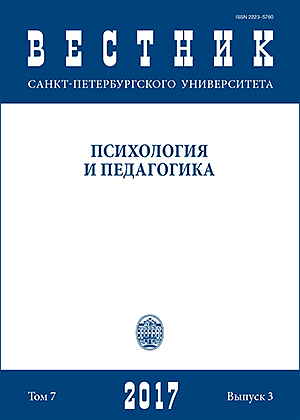Gerotranscendence: Psychological content and theoretical models
DOI:
https://doi.org/10.21638/11701/spbu16.2017.306Abstract
This paper considers the psychological content of gerotranscendence theory by L.Tornstam. Aging is a complex and multilevel process. The present paper examines the paradigm of the biopsychosocial model that encompasses the biological, psychological and social level, and psychological characteristics are seen as possible moderators of both biological and social levels. Gerotranscendence theory is a systemic model of optimal aging that includes a set of transitions taking place at the level of the personality, society and cosmos. This model offers an explanation for the specifics of psychological reflection of realm and interaction with the world in aging. This paper suggests predictors, factors and possible outcomes of the gerotranscendence changes on most general characteristics of one’s functioning such as psychological well-being and health. In the paper we hypothesize two alternative models of the formation of gerotranscendence: normative and qualitative. We describe possible triggers for its formation, and show that gerotranscendence can be seen as obligatory formation of aging or as a qualitative change.
Keywords:
psychology of aging, gerotranscendence, positive aging, development, psychological resources
Downloads
References
Downloads
Published
How to Cite
Issue
Section
License
Articles of "Vestnik of Saint Petersburg University. Psychology" are open access distributed under the terms of the License Agreement with Saint Petersburg State University, which permits to the authors unrestricted distribution and self-archiving free of charge.




